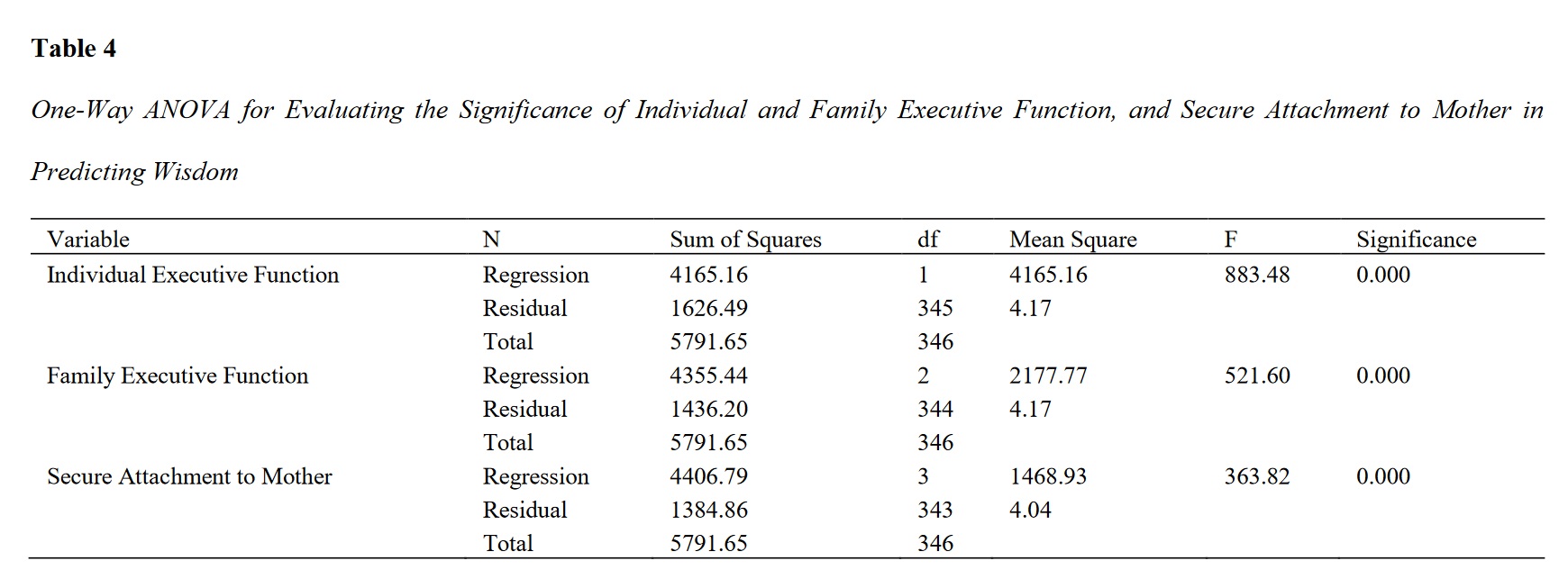Which Factors Better Predict Wisdom? Individual, Family, or Social Characteristics
Keywords:
wisdom, executive function, attachment style, personality, family executive function, family relationships, social characteristics, peer relationships, social media presenceAbstract
Objective: The present study aims to predict wisdom based on individual variables (executive function, attachment style, and personality traits), family characteristics (family executive function and family relationships), and social characteristics (peer relationships and social media presence).
Methods and Materials: In this descriptive-correlation study, the statistical population comprised all students of the University of Wasit. The sample consisted of three hundred students selected based on inclusion and exclusion criteria through convenience sampling. The research instruments included the Ardelt Wisdom Scale (2004), Executive Function (Golkar & Yousefi, 2020), Family Relationships (Barnes & Olson, 1982), Family Executive Function (Javanbakht & Yousefi, 2022), Personality (Costa & McCrae, 1992), Attachment (Armsden & Greenberg, 2000), Peer Relationships (Hudson, 1997), and hours spent on social media. The collected data were analyzed using stepwise regression.
Findings: The results showed that all predictor variables had a positive and significant relationship with wisdom except for extraversion. Among the mentioned variables, neuroticism, insecure attachment with mother and father, and more hours spent on social media had a negative and significant relationship with wisdom, while the remaining variables had a positive and significant relationship. Stepwise regression results indicated that among the variables examined, individual executive function, family executive function, and secure attachment with mother could predict wisdom.
Conclusion: Based on these results, it can be stated that changes in family executive function, individual executive function, and secure attachment with mother are associated with changes in students' wisdom.
Downloads

Downloads
Additional Files
Published
Submitted
Revised
Accepted
Issue
Section
License
Copyright (c) 2024 Alaa Sabah Mohammed Alnuaimi (Author); Zahra Yousefi (Corresponding Author); Ali Enad Zamil Aayedi , Mohsen Golparvar (Author)

This work is licensed under a Creative Commons Attribution-NonCommercial 4.0 International License.














